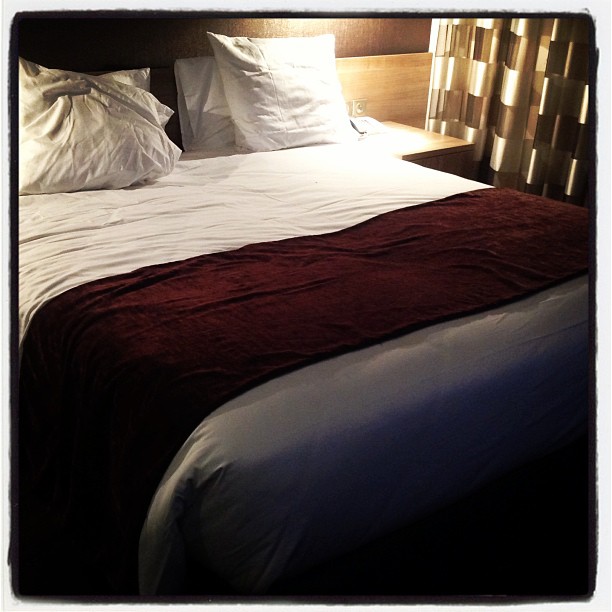 The hospitality industry is bigger than you think, and with travelling becoming even easier, it is continuing to grow. The industry contributes towards a large proportion of Britain’s overall GDP – whilst employing a significant number of workers too. Overall, the total gross value-added contribution to GDP was estimated to be around £143 billion in 2014, which is 10% of the UK’s GDP. As well as procuring an indirect employment figure of 775,000 people while directly employing 4.6 million people, for every £1 million the hospitality industry directly contributes, £1.5 million is created and absorbed by other parts of the UK economy.
The hospitality industry is bigger than you think, and with travelling becoming even easier, it is continuing to grow. The industry contributes towards a large proportion of Britain’s overall GDP – whilst employing a significant number of workers too. Overall, the total gross value-added contribution to GDP was estimated to be around £143 billion in 2014, which is 10% of the UK’s GDP. As well as procuring an indirect employment figure of 775,000 people while directly employing 4.6 million people, for every £1 million the hospitality industry directly contributes, £1.5 million is created and absorbed by other parts of the UK economy.
The hotel industry makes huge contributions to two key sub-sectors in the UK – hospitality and tourism. In the years between 2014 – 16, hotels (excluding the London area) experienced revenue per available room growth of 10.4% in 2014, which was forecasted to increase by 6.3% in 2015 and 4.2% in 2016. Year on year then, it is evident that the hotel industry is experiencing steady growth.
As smart technologies continue to interact and influence the hotel and B&B market, the future growth of the hospitality industry looks uncertain. Together with Shortridge, who specialise in hotel linen hire, we have looked to establish how this emerging digital market is challenging the way we use hotel spaces and how smart technologies may help benefit the hotel industry in the future:
The influence of smart technology
With the rise of apps such as Airbnb and Hostelworld becoming players in the market, the traditional hotel space’s ability to compete in the market is becoming compromised. This is because people who have a vacant space to rent for the night are often appealing to younger consumers who are more inclined to pay for ‘shared space’ accommodation at a cheaper price. Other influences of ‘shared spaces’ are interconnectivity, technology and smart apps and rising urbanisation. Now that users can simply log onto an app and then view many different properties in a convenient location, the idea of a stand-alone hotel becomes less appealing when positioned on a digital platform.
Figures suggest that hotel brands who are sticking to traditional methods of brand awareness are not having the same appeal in a technologically driven market. Research collected by BDRC Continental has suggested that apps similar to Airbnb outperformed hotel brands within a similar awareness scope.
Home stays
Both tourists and homeowners are benefitting from the trend of renting private space within someone’s home. Advertised as a way to submerge yourself into the host country’s culture, staying in a local home has become a cheaper and more quirky form of accommodation.
Figures showed that 9% of tourists and travellers in the UK have rented private space within someone’s home. Within Europe, this is lower than other countries, as France accommodated 11% of travellers in their homes and Germany accommodated 13% in their abodes. Within the European leisure market, it is clear this is an emerging trend and it is only expected to rise as millennials choose a cheaper alternative featured on a digital platform as opposed to more traditional hotels.
In the capital of London alone, over 40 million visitors have stayed in a shared space property found on an app and currently, there are over 30,000 spaces available in the city. This is, however, still lower than the amount of hotel rooms available in the capital – figured in 2015 at 138,769.
Perhaps in response to the growing interest in accommodation apps and homestays, low cost accommodation is set to increase by 29%. If hotel brands are to compete then, understanding that the app or digital platform is as important as the accommodation itself, is one way of fighting against the DIY hotelier revolution.
https://www.pwc.co.uk/assets/pdf/uk-hotels-forecast-2016.pdf
